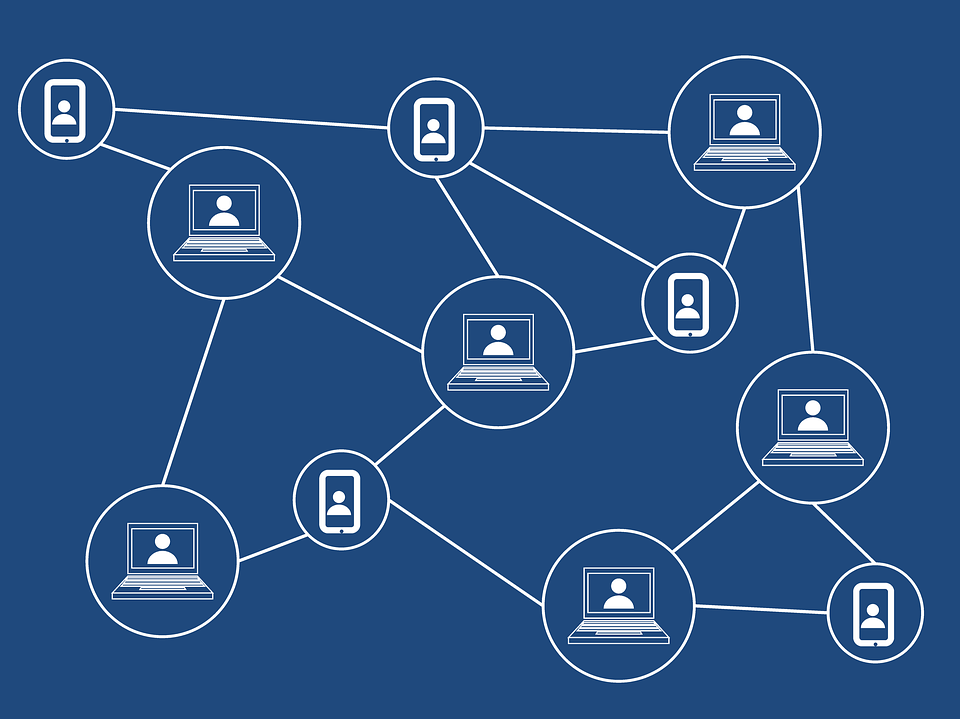
Adopting blockchain technology in healthcare could enable what an industry specialist has labelled the “holy grail” of medicine by allowing staff to track patient medical records and aggregate them in real-time.
This would allow doctors to view the entire history of a patient’s health, safe in the knowledge that it’s both thorough and up-to-date, but according to Edward Cole, chief strategy officer at blockchain software developer Atlas City, the technology is not yet “fit for enterprise use.”
Current methods of handling a patient’s medical data involve sharing it across multiple healthcare providers and organisations the patient has visited, as well as aggregating data collected by the wearables and devices that are monitoring their health.
Mr Cole says: “The holy grail for NHS Digital is to make patients feel comfortable sharing data with GPs and hospitals to enable better decisions that vastly improve the patient experience in terms of speed and certainty.
“Current systems are neither safe nor interoperable, which means that data is not sufficiently standardised, and the network is not sufficiently secure within a hospital environment, let alone secure enough to share data from hospital to hospital.”

What are the advantages blockchain will offer healthcare industries over the next five years?
There is an increase in patient data being unlawfully accessed as a result of cyber-attacks and other breaches of healthcare systems.
According to the healthcare statistician HIPAA Journal, between 2009 and 2018 there have been 2,546 healthcare data breaches, involving more than 500 records.
Those breaches have resulted in the theft of nearly 19 million healthcare records, which equates to more than 59% of the population of the US.
Healthcare data breaches are now being reported at a rate of more than one per day.
In addition, a report by market intelligence firm BIS Research states the adoption of the blockchain technology could save the healthcare industry up to $100bn to $150bn (£75bn to £110bn) per year by 2025 in data breach-related costs, IT costs, operations costs and support function costs.
Mr Cole believes blockchain is about empowering patients as they are “inherently nervous and suspicious of how their private data is handled.”
He says: “There’s a growing concern that both government and large global organisations are increasingly complacent and disrespectful when handling their data.
“A blockchain-based healthcare ledger moves trust away from a central authority and distributes it to a network of customers, GPs, care professionals, service and suppliers who validate the transactions on the network using mathematics.
“Records can then be accessed accordingly using identity controls compliant with local and international regulations.”
The benefits of a distributed ledger include incorporating document management and collaboration using AI and knowledge management, information security, threat management and information governance.
Mr Cole claims the most significant advantage of adopting blockchain technology will be the reduction in costs for administrative tasks as the NHS is already short-staffed.
Blockchain allows resources to be moved away from routine and repetitive administrative tasks prone to human error.
He added: “In the NHS vision of a Real Time Health System [a concept to convert data into knowledge] patients will interact with smart phones and devices using AI to provide diagnoses.
“This will lead on to a prognosis and then to an automated system to deliver medicines and inform the aftercare services and GPs.
“Medicines will be tracked from source to destination to guard against fraud and out-of-date supplies, and ensure that mistakes are not made.
“Combining blockchain within a single, integrated platform, with data encrypted end-to-end, has the potential to bring the Real Time Health System vision to life.”

What is vital to consider when applying blockchain technology in healthcare today?
Given the strict time pressures healthcare professionals are under, it’s no surprise they often use shortcuts to access files and information regarding the patients and clients they are attending to.
Although there are the complex protocols in place to protect patient information, crucial data is still lost or at risk of being lost due to the sheer volumes of data from numerous sources and formats.
Mr Cole said: “The unique quality of blockchain distributed ledger technology is that it can incorporate a compliant unique biometric digital record of your identity into every transaction, allowing the medical supply chains to operate with authority.
“This authenticity and authority enables confidential data to be safely shared within the hospital network, across borders and with insurance companies.
“Our technology allows machines to read the patient BIOMetrics, that hospital supplies, medical reports (X-Rays) and appointments have their own unique digital identity such that, processes and procedures are tracked and traced in an immutable way according to proven rules.
“These business rules can be fine-tuned much more readily as senior hospital staff have greater real-time visibility of outcomes informed by reliable and complete data.”
Why are medical devices an attractive target for hackers and cybercriminals?
Healthcare organisations and systems are prime targets for ransomware and other cyber-attacks, especially since they store valuable health information in a central location.
Using the WannaCry ransomware as an example, Mr Cole explained why concerns relating to tech-powered solutions will not go away while data remains stored and managed centrally.
He said: “When news of the WannaCry ransomware offensive shook the headlines in 2017, all eyes turned to see how the UK would respond to a devastating hit which cost the NHS £92m and caused the cancellation of 19,000 appointments.
“The industry went into overdrive to understand what lessons could be learned. And given that hospitals and GPs store highly sensitive and confidential information, making them natural targets for cybercriminals, cyber security experts were tasked with finding new ways to alleviate the growing cyber-threat pressure, if not prevent it completely.
“The fear and risk associated with the deployment of tech-powered solutions will not go away while data is stored and managed centrally, this architecture not only provides a ‘honeypot’ for bad actors but also makes meeting data protection more difficult, in turn hindering decision-making and crippling progress.”

What should be the guiding the principle for health organisations when using blockchain technology?
To ensure an organisation’s patient care and health data management is following the best practices in data and network security, Mr Cole emphasises that trust is everything and organisations should follow three key principles – confidentiality, integrity and access.
He explained there should be confidentiality in keeping data private, integrity through ensuring data will not be tampered with and access should be afforded to authorise parties when needed.
He believes true patient empowerment can only be attained through the use of technologies such as AI, natural language programming and distributed ledger technology that will enable real-time, data-rich, increasingly-virtual digital care delivery models.
Atlas City has created a new blockchain that addresses the challenges faced by the medical sector known as “Catalyst,” with the aim to act as a trusted platform by design.
Mr Cole said: “Atlas blockchain creates a digital platform to facilitate new relationships that allows re-engineering, simplification and rethinking and transforming business processes to be more efficient.
“This can be achieved through the use of the Catalyst Ledger.
“It allows all transactional interactions to be distributed, Catalyst Ledger allows greater interoperability with back-end data collection systems by using an intelligent API”
“As these technologies become available, an excellent opportunity to manage, secure and extract health data value using AI presents itself.”






